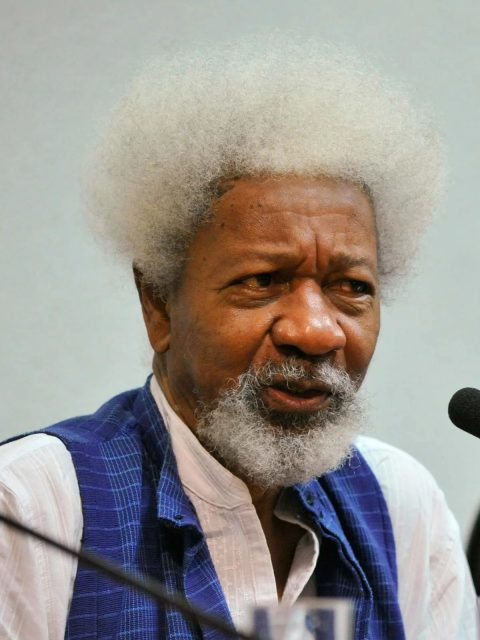Government Keypoints: Institutions of Government in Post-Independence Nigeria; This study material is suitable for students sitting for the following exams: JAMB, WAEC, NECO, GCE, IJMB, and JUPEB.
Study more government keypoints here
Government Keypoints: Institutions of Government in Post-Independence Nigeria
In the wake of Nigeria’s independence from British rule, the country established key institutions of government to administer its affairs. These institutions—the Legislative, Executive, and Judiciary—were crucial in forming the framework for governance, each playing distinct roles in the administration of the nation. Additionally, various agencies and bodies within these arms of government, such as the civil service, armed forces, police, and courts, significantly influenced Nigeria’s political and social landscape.
a. The Legislative
Structure: Nigeria’s legislative branch comprises the National Assembly, consisting of two chambers: the Senate and the House of Representatives. The Senate has 109 members (three per state and one from the Federal Capital Territory), while the House of Representatives has 360 members representing constituencies across the country.
Functions:
- Lawmaking: Enacting laws and amending existing legislation.
- Representation: Representing the interests and concerns of constituents.
- Oversight: Scrutinizing the activities of the Executive, including budgetary allocations and policy implementation.
- Approval and Confirmation: Confirming appointments and treaties made by the Executive.
- Constituency Engagement: Engaging with citizens to address their grievances and concerns.
- Budgetary Control: Approving national budgets and financial expenditures.
Working: The National Assembly convenes to debate and pass bills into law. Committees are formed to review proposed legislation, conduct investigations, and oversee specific areas like finance, education, and health. The Senate has the authority to confirm certain executive appointments and ratify treaties, while the House of Representatives focuses more on budgetary matters and legislation.
b. The Executive
Structure: The executive branch consists of the President, Vice President, and members of the Federal Executive Council (FEC). The President is the head of state and government, while the Vice President assists in executive duties. The FEC comprises ministers appointed by the President to oversee various ministries.
Functions:
- Policy Formulation: Setting government policies and agendas.
- Administration: Implementing policies and managing government affairs.
- Diplomacy: Representing Nigeria in international relations and negotiations.
- Security: Overseeing national security and defense.
- Appointment and Direction: Appointing government officials and providing direction to ministries.
- Budget Proposal: Presenting the national budget to the legislature for approval.
Working: The President, as the chief executive, exercises executive powers and directs government activities. The Vice President supports the President’s duties and assumes office in the President’s absence. The FEC convenes regularly to discuss policies, budgets, and matters of national importance.
c. The Judiciary
Structure: Nigeria’s judicial branch is structured hierarchically, consisting of the Supreme Court, Court of Appeal, Federal High Court, and State High Courts. The Supreme Court serves as the highest appellate court in the country.
Functions:
- Interpreting Laws: Interpreting the constitution and laws of Nigeria.
- Adjudication: Resolving disputes, both civil and criminal, in accordance with the law.
- Judicial Review: Reviewing actions of the Executive and Legislature to ensure they align with the constitution.
- Protection of Rights: Safeguarding fundamental human rights and liberties.
- Preservation of Justice: Ensuring fair and impartial adjudication.
- Precedent Setting: Establishing legal precedents through judgments.
Working: Courts hear cases brought before them, applying the law to the facts presented. Judges interpret laws, make decisions, and provide judgments based on legal precedents and statutes. The hierarchy allows for appeals from lower courts to higher ones, ultimately culminating in the Supreme Court.
Evaluation of Government Arms and Agencies
Civil Service: The civil service plays a vital role in policy implementation, though bureaucratic inefficiencies and corruption have historically hindered its effectiveness.
Armed Forces: Historically, the military has intervened in governance, leading to periods of military rule. However, efforts have been made to maintain civilian oversight and professionalism within the armed forces.
Police: Law enforcement faces challenges such as corruption, inadequate resources, and human rights abuses, affecting public trust and effectiveness.
Courts: The judiciary faces challenges of backlog, corruption, and delays in delivering judgments, impacting access to justice and public confidence.
Others: Various agencies like the electoral commission, anti-corruption bodies, and regulatory authorities influence governance. While some exhibit efficiency, others grapple with challenges of corruption and inefficiency.
Conclusion
Nigeria’s government institutions—Legislative, Executive, and Judiciary—form the backbone of its governance structure, overseeing lawmaking, policy implementation, and dispute resolution. However, challenges within these arms and associated agencies, such as inefficiencies, corruption, and capacity issues, have impacted effective governance and public trust. Addressing these challenges remains crucial for ensuring a robust and functional government that serves the interests of its citizens.








